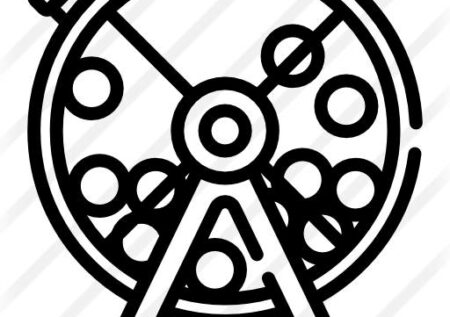The simplest way to define baccarat is as a card game where you have 2 or 3 cards. The winning hand is the one with the higher score.
Baccarat is strictly a game of chance; there’s no strategy involved. It’s traditionally a high roller game, although recent versions of the game cater more to gamblers who are playing for lower stakes.
- Very easy to learn
- Has a very low casino edge
- You can benefit from a lot of bonuses
- Lack of casino atmosphere
- Higher wagering
- The payouts are not great as you could expect
The simplest way to define baccarat is as a card game where you have 2 or 3 cards. The winning hand is the one with the higher score.
Baccarat is strictly a game of chance; there’s no strategy involved. It’s traditionally a high roller game, although recent versions of the game cater more to gamblers who are playing for lower stakes.
This post includes everything you might ever want to know about the game of baccarat and how to play.
How to play Baccarat
You start by sitting down at the table and buying chips. The card is played from an 8-card deck, and the cards are given point values, just like they are in blackjack. The point values are slightly different though:
The point values are slightly different though:
- Aces are worth 1 point. (Not 1 or 11.)
- Numbered cards are worth whatever number they have (2 through 9).
- Face cards (the jack, queen, and king) are worth 0.
You start by betting on one of 2 hands—player or banker. You also have the option of betting on a tie, but never place this bet. It’s a sucker bet with lousy odds, and I’ll explain that in more detail soon.
Depending on where you play, you might have other side bets to choose from, but it’s best to just skip side bets. They almost always have lousy odds.
Unlike blackjack, where you get a hand that you play against the dealer, there are only 2 hands in baccarat, regardless of how many players are there. In blackjack, each player has a hand to play against the dealer. But in baccarat, there’s just a player hand and a dealer hand.
As in blackjack, though, each hand has 2 cards in it to start.
Each hand is scored with a total of between 0 and 9. You arrive at the point total by adding the points for each card in the hand.
If you have a total of 10+, you just count the points based on what’s after the 1. For example, if you have a total of 14, that’s just a total of 4—you ignore the 1.
In blackjack, you get to choose whether to take additional cards or not. For the player in blackjack, this is a matter of decision-making.
For the dealer in blackjack, it’s a matter of which criteria are present—dealers must always hit a hand with a total of 16 or less, regardless of any other factors.

In baccarat, there’s a set of rules that determine whether a 3rd card gets dealt to a hand. A total of 8 or 9 is considered a “natural,” and if either the player OR the banker has a natural, neither hand gets an extra card.
If the player hand totals 6 or 7, the hand stands. If the player hand is a total of 5 or lower, that hand always gets an additional card.
If the player hand stood with a 6 or 7, the banker takes an additional card if the banker total is 5 or lower. If the banker has a 6 or 7, the banker hand stands.
Things start getting more complicated if the player drew a 3rd card.
The banker takes another card based on that hand’s total versus the player hand total, as follows:
- If the dealer has a 7 or better, the dealer hand stands.
- If the dealer has a 6, the hand stands unless the player has a 6 or 7, in which case the dealer gets a 3rd card.
- If the dealer has a 5, the dealer draws with a total of 4, 5, 6, or 7. Otherwise the hand stands.
- If the dealer has a 4, the dealer draws with a total of 2, 3, 4, 5, 6, or 7. Otherwise the hand stands.
- If the dealer has a 3, the hand only stands if the player total is 8. Otherwise, the hand draws a 3rd card.
- If the dealer has a 2, 1, or 0, the hand always gets another card.
This might seem complicated. That’s because it is.
Luckily for the player, it doesn’t matter if you understand what’s happening here or not. The odds are the same regardless, and the player has no meaningful decision to make other than whether to bet on the player hand or the banker hand.
The hand that wins is the one with the higher score. If both hands have the same total, a player bet or a banker bet is considered a push, which is a tie. You get your bet back, but you don’t get any winnings.
If you took the tie bet, you only win if the player and banker hands have the same total.
The player bet pays off at even money. In other words, if you bet $100 on the player and win, you get $100 in winnings.
The banker bet pays off at 19 to 20 odds. In other words, if you bet $100 on the banker and win, you get $95 in winnings. (It’s like paying a 5% commission.)
The tie bet pays off at 8 to 1, which means if you bet $100 on the tie, you’d win $800.
The House Edge in Baccarat
All casino games have a built-in mathematical advantage for the casino. This is called “the house edge.” It’s the theoretically perfect amount that the casino expects to win in the long run from each of your bets.
If the house edge for a game is 1%, then the casino expects a theoretical win of $1 every time you place a $100 bet.
The casino gets this edge by paying off bets at lower odds than the odds of winning are.
In some casino games, the house edge is the same regardless of which bet you place. In others, the edge varies from bet to bet.
Baccarat is the latter type of game. The house edge for each of the main bets in baccarat is as follows:
The banker takes another card based on that hand’s total versus the player hand total, as follows:
- The banker bet has a 1.06% house edge.
- The player bet has a 1.24% house edge.
- The tie bet has a 14.36% house edge.
The best strategy for most casino games is to take the bet with the lowest house edge. In the case of baccarat, that’s the banker bet. The difference between the banker bet and the player bet is small enough (0.18%) that you could go with the player bet if you find it more entertaining.
You can sometimes find a casino which offers a “reduced commission” on the banker bet. Instead of charging a 5% commission, they might charge a 4% or 3% commission—or less.
Any reduction in the commission on this bet results in a lower house edge for the game, which means that the banker bet is even better at such a casino running such a special.
Baccarat Strategy
Gamblers are always looking for a strategy or a system to help them get an edge over the casino. In some cases, this is possible. Card counting in blackjack is an example.
Baccarat has no opportunity for a winning strategy, though. The house edge for these bets stays the same regardless of any strategy you might try.
With that understood, I’ll look at some of the baccarat strategies that people try and explain the pros and cons of each.
How these trends inform a gambler’s betting depends on whether the gambler prefers to try to ride a hot streak or if the gambler thinks that a result has become overdue.
Gamblers who ride hot streaks will see that the banker bet has won 4 times in a row, so they’ll bet on the banker to take advantage of the hot streak.
Gamblers who believe that results become due will bet on the player in that same situation, thinking that it’s unlikely for the banker to win 5 times in a row.
Both these strategies are examples of something called “The Gambler’s Fallacy.” This is the idea that the probability of an event changes based on what happened on previous trials.
But with games like baccarat, every hand is an independent event. The odds don’t change based on what happened on previous hands. The house edge remains the same—it’s still a function of how likely you are to win versus how much you win.
Another baccarat strategy is to raise or lower the size of your bets based on previous losses or wins. The Martingale System is usually considered a strategy for roulette, but some players use it in baccarat, too.
Here’s how the Martingale System works:
You always place the same even money bet. With a win, you celebrate. With a loss, you double the size of your previous bet. If you lose multiple times in a row, you double the size of your previous bets in a progression.
For example, if you bet $100 on your 1st bet, and lose, you’ll bet $200 on your 2nd bet. If you lose again, you’ll bet $400 on your 3rd bet.
After each progression, when you eventually have a win, you’ll recoup your losses from the previous bets and come out ahead by one unit.
This sounds great in theory, but it assumes that long losing streaks are less probable than they actually are. What The Martingale System does is improve your probability of having a small winning session, but you’ll also face occasional large losing sessions that make up for your losing session.
That’s because you’ll always eventually either run into the top of the betting limits for the casino or the top of the betting limits that your bankroll can handle.
Let’s say you sit down with $5000.
If you start with a bet of $100, you’ll hit a $5000 loss faster than you think:
- 1. $100
- 2. $200
- 3. $400
- 4. $800
- 5. $1600
- 6. $3200
- 7. $6400
If you lose 5 times in a row, you’ll have lost $3100, so you won’t even have enough money to place the next bet. (You started with $5000, so you only have $1900 left.)
Most casinos also have maximum betting limits. They vary, but there’s usually not a huge betting spread possible.
Some players wonder if they could get an edge at baccarat by counting cards, just like blackjack players get an edge. This is theoretically possible, but a deck with a positive expectation would only come up rarely—too rarely to be practical.
Also, the kind of edge you could gain in baccarat would be too small to have a practical effect on the amount you were able to win.
If you can convince the dealer to rotate some cards one direction instead of another, you can theoretically predict which cards will be high and which ones low.
Poker player Phil Ivey used this technique to win a fortune in the United Kingdom, but the casino said he was cheating. The courts upheld this decision, so Ivey didn’t get his winnings. Edge sorting requires more effort than most gamblers I know are willing to make.
I’m not sure it would be worth the effort if the casino were to also just void your winnings because you were cheating.
You can find other, easier, more reliable ways to get an edge when gambling. Learn to play poker well, or become a sports betting expert.





